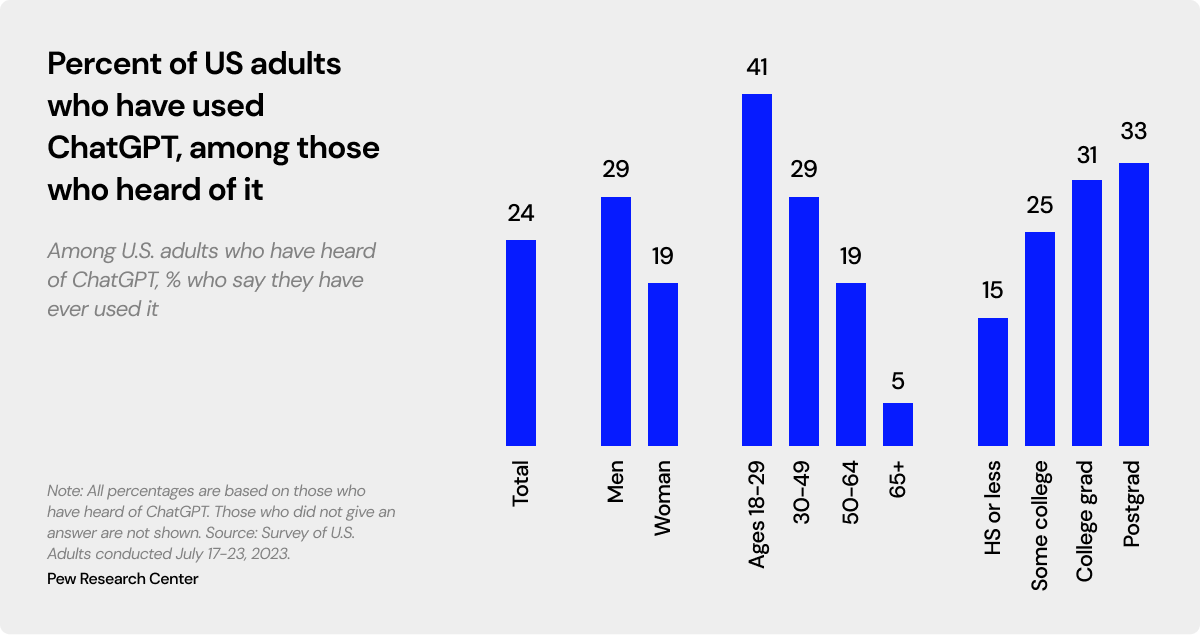Insight
Cultural Tension: Authenticity in AI
October's New York Tech Week saw 55 separate AI-focused events. Panels and gatherings around subjects from “Web3 x AI: Empowering Fintech” to “Building Consumer AI Products People Want” brought investors and founders together to discuss the applications and implications of a technology that, as one event title put it, is “obviously the future.”
But for all the buzz, we’ve yet to see widespread consumer adoption. Fifty-eight percent of American adults have heard of ChatGPT, but only 18% have used it. The platform has actually seen a decrease in monthly active users over recent months.
As demand-side investors, we look for technology applications that solve real human problems. AI has that potential, but attempts to commercialize the AI experience have yet to resonate. We’ve seen companies, for example, personify AI agents to make users a bit more comfortable forging connections with them. In this new era of generative AI, human names have become, according to The Atlantic, an “easy way to make products feel smarter and more personal.” (Tools like Bard, Jasper, and Ema are great examples.) But efforts to make AI approachable cannot stop at the name.

We aren't interested in these surface-level attempts as much as we are in truly next-generation brand relationships powered by AI. Like any technology, we are more interested in the application than the innovation.

As AI technology improves exponentially, the winning consumer applications will be those companies willing to take a step back to prioritize user experience. There is massive opportunity for a demand-side approach to AI - one that establishes trust at every stage, fits seamlessly into current behavior (or at least guides users to develop new, efficient habits), and stands for something greater than a utility.
More
Insights
Pioneers Mid-Year Sentiments 2025Insights
2025 Bullish Consumer/LP Summit HighlightsNews
Mike Duda featured in Beauty IndependentInsights
The Postzempic EconomyInsights
Cultural Tension: There’s no I in TEAM, there's MEInsights
Atomization of AttentionSign up for the latest consumer insights and news
Most Dangerous Agency in America™
©2025